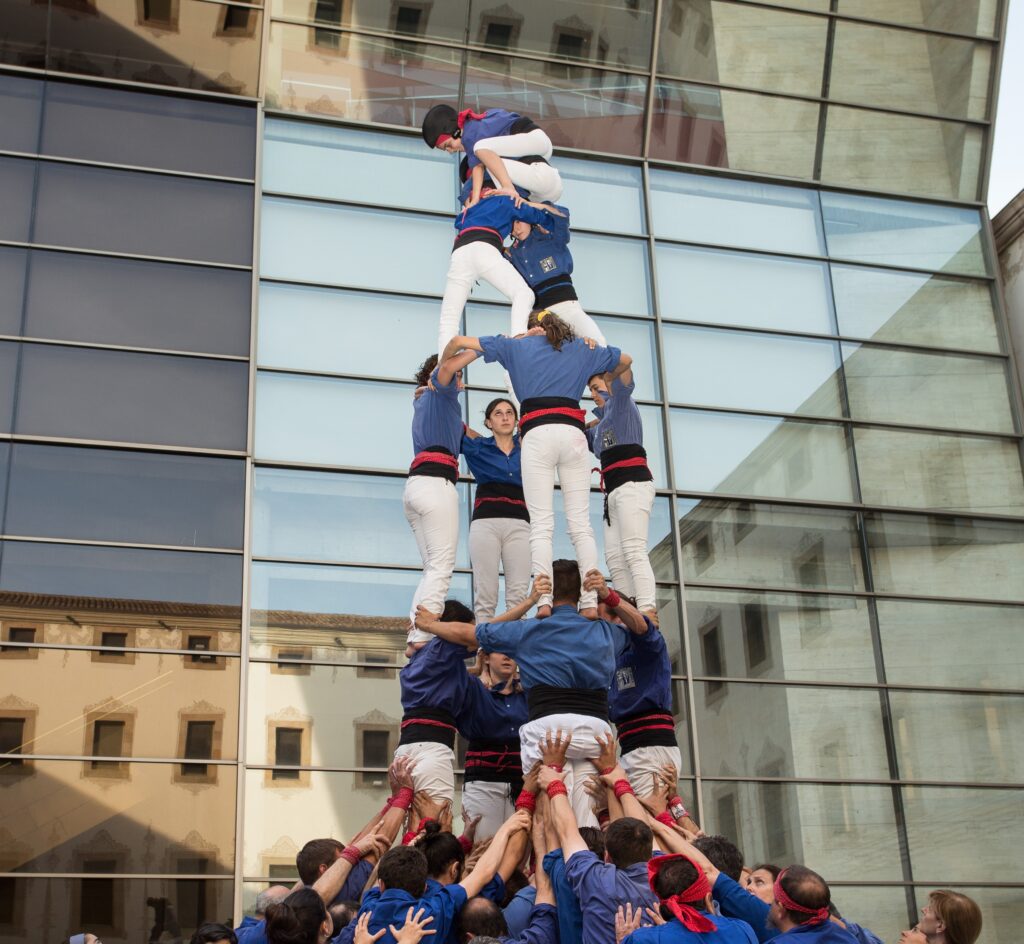Premio Fundación Real Academia de las Ciencias al Joven Talento Científico Femenino 2024
· María Escudero (ICN2)
ERC Consolidator Grants 2024
· César Rodriguez-Emmenegger (IBEC)
· Arnau Sebé-Pedrós (CRG)
ICREA Research Professors amongst the 1% most cited researchers of 2024 worldwide
ERC Synergy Grants 2024
· Diego Blas (IFAE)
· Mariona Graupera (IJC)
· Kostas Kostarelos (ICN2)
InBrain Neuroelectronics raised 46 million euros to advance its graphene brain implants
HIGHLIGHTS
Engineering graphene-based quantum circuits with atomic precision
Mugarza Ezpeleta, Aitor (ICN2)
Engineering SciencesThe earliest Ethiopian wolf: implications for thespecies evolution and its future survival.
Martínez Navarro, Bienvenido (IPHES)
HumanitiesArtificial Intelligence-driven material design for advanced interconnects technologies
Roche, Stephan (ICN2)
Engineering SciencesFundamental limits to learning mathematical models from data
Guimerà Manrique, Roger (URV)
Experimental Sciences & MathematicsRadical improvement of ultra-bioadband photodetection with Graphene
Koppens, Frank (ICFO)
Experimental Sciences & MathematicsGeneric Platform for the detection of Osteoporosis
O'Sullivan, Ciara (URV)
Engineering SciencesEngineering graphene-based quantum circuits with atomic precision
Mugarza Ezpeleta, Aitor (ICN2)
Engineering SciencesThe earliest Ethiopian wolf: implications for thespecies evolution and its future survival.
Martínez Navarro, Bienvenido (IPHES)
HumanitiesArtificial Intelligence-driven material design for advanced interconnects technologies
Roche, Stephan (ICN2)
Engineering SciencesFundamental limits to learning mathematical models from data
Guimerà Manrique, Roger (URV)
Experimental Sciences & MathematicsRadical improvement of ultra-bioadband photodetection with Graphene
Koppens, Frank (ICFO)
Experimental Sciences & MathematicsGeneric Platform for the detection of Osteoporosis
O'Sullivan, Ciara (URV)
Engineering SciencesEngineering graphene-based quantum circuits with atomic precision
Mugarza Ezpeleta, Aitor (ICN2)
Engineering Sciences
ICREA IS AN INSTRUMENT OF THE CATALAN GOVERNMENT
ICREA is a public institution 100% funded by the Generalitat de Catalunya.
ICREA is an institution without walls. It works hand in hand with Catalan universities and research centres to integrate ICREA research professors in the Catalan research system.
ICREA offers permanent, tenured positions to researchers from all over the world to come and work in Catalonia.
Over the years these positions have become a synonym of global academic excellence.
ICREA COMMUNITY
ICREA Research Professors form a vibrant community of scientists and researchers in all areas of knowledge that contribute to the advancement of humankind by exploring, interpreting and questioning.

UNIVERSITIES AND RESEARCH CENTRES IN CATALONIA
ICREA would not make any sense without the dense network of host institutions that are actively involved in research in Catalonia.
THE NEW ICREAs
ICREA is an expanding community. Each year, new researchers join ICREA
after the ICREA call. This is a list of the most recent incorporations. We
would like to give them all a very warm welcome to the ICREA
community: Benvinguts!
Roca Aparicio, Anna
Life & Medical Sciences
Institut de Salut Global Barcelona (ISGlobal)
As an infectious disease epidemiologist, I design tailored interventions to reduce viral & bacterial mortality among the world’s most vulnerable populations. My research integrates epidemiology, microbiology and genomics to investigate transmission and develop strategies that drive global impact.
Biagetti, Stefano
Humanities
Universitat Pompeu Fabra (UPF)
My research focuses on human adaptation to climate change and food security in drylands. I am developing new geo-ethnoarchaeological methodologies to study pastoralism using a multiproxy approach.
Böke, Elvan
Life & Medical Sciences
Centre de Regulació Genòmica (CRG)
Our research focuses on the strategies and mechanisms that allow egg cells to evade ageing for decades, and why these strategies eventually fail with advanced age.
Eskicioglu, Cigdem
Engineering Sciences
Universitat Politècnica de Catalunya (UPC)
As an environmental engineer, I develop technologies to convert waste into valuable resources, aiming for a biorefinery and circular economy. My research tackles industrialization and urbanization challenges by designing advanced reactor processes for contaminant removal and waste-to-biofuel conversion.
Gualtieri, Marco
Experimental Sciences & Mathematics
Universitat Politècnica de Catalunya (UPC)
I work in geometry and mathematical physics, with a focus on developing mathematical structures with applications to quantum field theory. My main contributions have been in generalized complex and Kähler geometry, Poisson geometry, singular differential equations and discrete geometry.
Roca Aparicio, Anna
Life & Medical Sciences
Institut de Salut Global Barcelona (ISGlobal)
As an infectious disease epidemiologist, I design tailored interventions to reduce viral & bacterial mortality among the world’s most vulnerable populations. My research integrates epidemiology, microbiology and genomics to investigate transmission and develop strategies that drive global impact.
Biagetti, Stefano
Humanities
Universitat Pompeu Fabra (UPF)
My research focuses on human adaptation to climate change and food security in drylands. I am developing new geo-ethnoarchaeological methodologies to study pastoralism using a multiproxy approach.
Böke, Elvan
Life & Medical Sciences
Centre de Regulació Genòmica (CRG)
Our research focuses on the strategies and mechanisms that allow egg cells to evade ageing for decades, and why these strategies eventually fail with advanced age.
Eskicioglu, Cigdem
Engineering Sciences
Universitat Politècnica de Catalunya (UPC)
As an environmental engineer, I develop technologies to convert waste into valuable resources, aiming for a biorefinery and circular economy. My research tackles industrialization and urbanization challenges by designing advanced reactor processes for contaminant removal and waste-to-biofuel conversion.
Gualtieri, Marco
Experimental Sciences & Mathematics
Universitat Politècnica de Catalunya (UPC)
I work in geometry and mathematical physics, with a focus on developing mathematical structures with applications to quantum field theory. My main contributions have been in generalized complex and Kähler geometry, Poisson geometry, singular differential equations and discrete geometry.
Roca Aparicio, Anna
Life & Medical Sciences
Institut de Salut Global Barcelona (ISGlobal)
As an infectious disease epidemiologist, I design tailored interventions to reduce viral & bacterial mortality among the world’s most vulnerable populations. My research integrates epidemiology, microbiology and genomics to investigate transmission and develop strategies that drive global impact.
ANNUAL REPORT
These research reports summarize the work done during a year.
Publications are the most visible part of research, but we must also take into consideration other elements that show the contribution of our researchers to the improvement of the Catalan R+D system: creation of new research teams and opening of new research lines, consolidation of existing teams and research areas, mentoring of doctoral dissertations, teaching at all academic levels, etc.
Thus, the reports quantify not only the scientific production of our researchers but also their broader impact.


